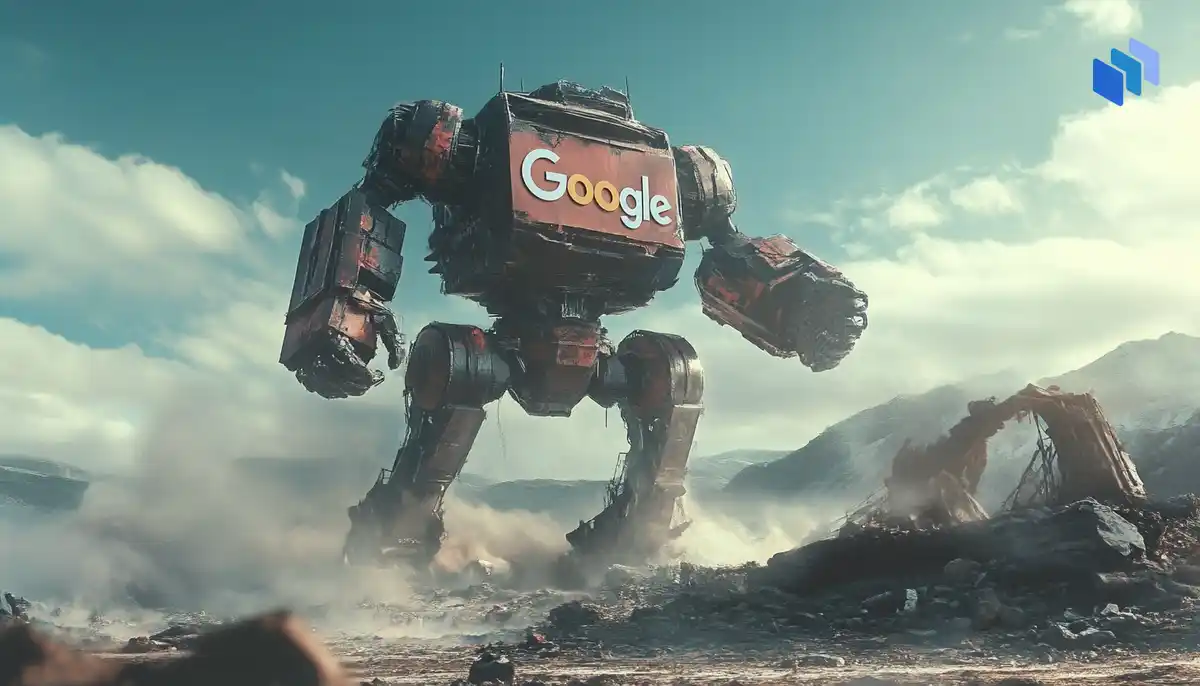It was a historic, landmark 277-page August 5 ruling in which District of Columbia district court judge Amit Mehta concluded that Google violated antitrust law and spent billions of dollars to create a monopoly — the world’s default search engine.
The new ruling is considered a big win for U.S. federal authorities taking on Big Tech. Google is accused of spending more than $10 billion every year on brands like Apple, Samsung, Mozilla, and others to be pre-installed as the default search engine across platforms.
While the court recognized the innovation and quality of Google’s products, it found that the company’s actions have left the market without true competition — Google controls about 90% of the online search market and 95% of the smartphone market.
As the dust settles, we ask experts what comes next — a company breakup? Years of litigation? Or is Google about to be blindsided by a different competitor altogether?
Key Takeaways
- A U.S. district judge ruled that Google maintained its dominance in the search market through anti-competitive practices.
- Google paid billions to companies like Apple and Samsung to be the default search engine, stifling competition
- The lack of competition due to Google’s monopoly has hindered innovation in the search industry.
- Google plans to appeal the ruling, which could delay significant changes to the search market for years.
- The rapid development of AI-powered search, especially from OpenAI, could overshadow the antitrust case and reshape the search landscape.
It’s Not About Web Browsers, It’s About Big Rent
In the ruling, Judge Mehta explained how difficult it would be for a competitor to challenge Google’s dominance.
“Even if a new entrant were positioned from a quality standpoint to bid for the default when an agreement expires, such a firm could compete only if it were prepared to pay partners upwards of billions of dollars in revenue share.”
While some say the decision of the court could have significant consequences, lead to Google splitting up departments, and empower new search companies, others doubt real change will come anytime soon.
Talal Shamoon, CEO of Intertrust, a Silicon Valley-based software company specializing in trusted computing products and services, spoke to Techopedia about what will happen next.
“Google says that they’re going to fight and appeal to (Supreme Court of the United States) SCOTUS. It remains to be seen what happens, but a voluntary opening of their platform will help them grow back better — the fact that they’re in this hot water in the first place means that they should restructure anyway. We’ll see.”
Shamoon from Interturst said that the trial is not about web browsers or competitors like DuckDuckGo, Firefox, Safari, or Bing.
“This is not about a search monopoly — it’s about an advertising monopoly enabled by a lock on search.”
Despite all this, Shamoon is optimistic and said the ruling will have positive impacts.
“There is no question whatever happens will be better for consumers and innovation.”
The Microsoft 2000 Deja Vu & Increasing Antitrust Vigilance
Anat Alon-Beck Associate Professor at Case Western Reserve University School of Law, told Techopedia that the ruling is a success as it shows that the judiciary is able to tackle modern technology.
“The recent ruling against Google by Judge Amit P. Mehta marks a significant milestone in the ongoing evolution of antitrust enforcement in the tech industry.
“Drawing parallels with the landmark Microsoft case of 2000, this decision underscores the judiciary’s pivotal role in maintaining competitive markets, even amidst rapid technological advancement.”
In 2000, the U.S. Department of Justice and 19 states sued Microsoft for similar practices — forcing the integration of its web browser with its OS and aggressively going after competitors.
The judge ruled that Microsoft should split into two separate units: one producing the operating system and the other software components. Microsoft immediately appealed the ruling.
One year later, the parties agreed to settle without a company breakup — imposing some limitations on Microsoft’s behavior.
Professor Anat Alon-Beck explained how both cases connect.
“Just as the Microsoft ruling two decades ago set essential precedents and shaped the digital landscape by curbing monopolistic practices, the Google case is poised to influence the future conduct of tech giants.”
Professor Anat Alon-Beck said this new decision also signals a broader resurgence in antitrust activism, “reflecting a commitment from regulators to adapt 19th-Century legal principles to contemporary market dynamics”.
“As seen with the enforcement actions against Apple, Amazon, and Meta, there is a clear intent to ensure that monopolistic behavior does not hinder innovation and consumer choice.”
Responding to what comes next, Professor Anat Alon-Beck said:
“The forthcoming remedies and Google’s anticipated appeal will be closely watched, not only for their immediate impact on Google’s operations but also for their potential ripple effects across the tech industry.”
“Ultimately, this case reaffirms the need for vigilant antitrust oversight to foster a competitive and innovative economic environment.”
Can U.S. Justice Move Faster than the Speed of AI?
Google has almost unlimited resources for legal teams. Add this to the complex and rather lengthy appeal process and the sophistication of a Supreme Court appeal, and what we get is a lengthy and costly legal battle that can drag on for years, potentially delaying justice and overwhelming opponents.
Pam Aungst Cronin, Owner of Pam Ann Marketing, spoke to Techopedia about appeal strategies.
“The impact on search from this ruling will be… nothing, at least not for years to come.
“The appeals process will effectively pause this decision for a very long time, and Google is facing a much more immediate threat: AI, in particular, OpenAI’s upcoming SearchGPT product.”
Cronin said that Google is more worried about OpenAI than it is about the anti-trust case.
Reuters quoted a former Google employee, Arvind Jain: “I think for Google right now, AI (is) a much bigger deal than the ruling. AI is fundamentally changing how the search product also works.”
Another former Google employee said the rise of OpenAI’s search product would make the monopoly case no longer valid.
“AI is going to move faster than the speed that the DOJ can move against Google. The whole monopoly will be over, in other words, the speed at which AI will take over search.”
Cronin from Pam Ann Marketing told Techopedia that by the time the legal system forces Google to change, it will already have transformed — out of necessity.

